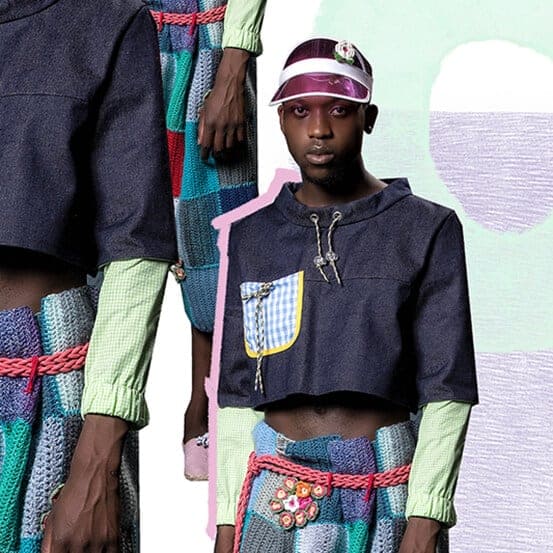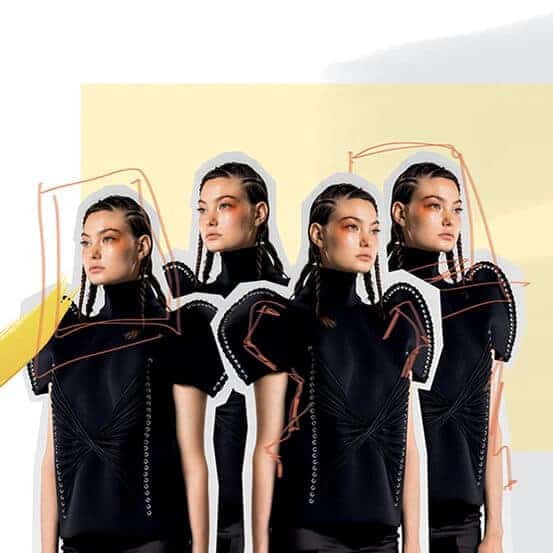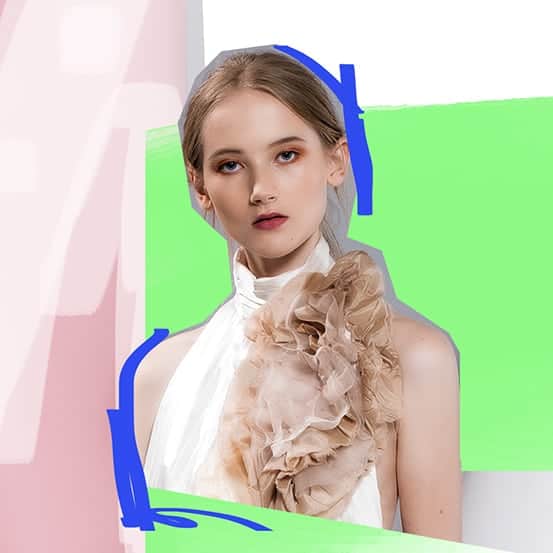- Duration: 3 years
- Language: English
- Campuses: Paris, Online
- Next intakes: September 2024, January 2025
- Application fee: €150
- Tuition fee/year:
Paris €9,400
Online €6,500 - Resource fee/year: €400
Introduction
Within the United Nations framework, sustainability is defined by uniting the three pillars of environmental, economic and social development. Utilizing the Brundtland Report as a blueprint for how countries and businesses should manage economic growth with social justice and ecological viability, the Global Goals were adopted in 2016 in hope of a better world by 2030.
Corporate Social Responsibility (CSR) is introduced as the recommended approach of sustainability, guiding organizations to address the environmental and social impacts of business activities at a systemic level. Companies have found it relevant to simultaneously engage with the “Triple Bottom Line” approach, while trying to harmonize their effort to become economically efficient, environmentally sound and socially responsible, balancing the three P’s: “People, Planet, Profit”
The Bachelor Fashion Sustainability program will look into how fashion houses can implement integrated practices with “lean, green and corporate social responisibility”…together, rather than separately, influencing the three bottom lines for sustainability.
Students understand why it is crucial for a fashion brand to drive claims and demonstrations of ecoefficiency towards third-party certification schemes and to have its products eco-labelled and certified. In that light and from that perspective, they approach and consider the promising, pioneering efforts of high-end fashion brands in developing new perspectives in sustainability accounting: Students are led to grasp under which conditions some key brands in the textile and fashion sector have started to re-align their whole value creation process towards sustainability, introducing very relevant practices and tools, often their own new derived tools, in demonstrating about product stewardship through comparisons, benchmarks, using life cycle analyses as a regular tool and leading the field in sourcing development? They are led to discover and explore these calculators, new measuring tools, indexes, such as the Kering EP&L (Environmental profit and loss) or the Nike Index, developed and used by brands to assess the strategic performance of their sourcing, yearly published through CSR reporting, often together with their “code of conduct”, social report and brand performance.
The course brings in concrete case studies and speakers showcasing how this monitoring process within fashion or textile companies is tangible and valid when it anchors in openly sharing the results of their suppliers’ audits, performed with third-party collaboration, including disclosure of factory details, towards complying with transparency? And how these tools, developed within a third-party review process, allow to benchmark sustainability performance and hence, truly advocate responsibility? What is Nike’s disclosure policy through the guiding of an NGO like FLA (Fair Labour Organization)? What are the most convincing tools in simultaneously applying and assessing CSR such as the Higgs Index developed by SAC (Sustainable Apparel Coalition) for brands (Patagonia or H&M using it) to self-assess their sustainability improvements throughout a product’s entire life cycle or to conceive their own scoring scale in communicating a product’s sustainability impact to consumers… How to start integrating ecology into economy, taking notice of these brands abiding by the law but also anticipating, questioning regulation, co-working at legislation through panels, platforms, industry workgroups, think tanks, in a participatory mode with policy-makers, local governments, institutions? How to envisage sustainability through CSR as a business opportunity offering ways to control risks, to reduce cost, to increase market share and boost revenues?
The Bachelor Fashion Sustainability shares its’ two first years with either the Bachelor Fashion Design & Technology or the Bachelor Fashion Marketing, depending on the orientation (design or business) the student wants to pursue:
– Should students choose the Bachelor Fashion Sustainability in design, the 3rd year final collection will consist of a collection adhering to the sustainability criteria.
– Should students choose the Bachelor Fashion Sustainability in business, the 3rd year will consist of a personal final project on sustainable environment in fashion.
The 3 years structuring the course correspond to the 3 levels identified within the Higher Education Framework. The course is constructed in compliance with the Bologna Convention principles and grants participants, upon completion, a total of 180 ECTS (60 ECTS per year).
The online program takes place live and in real-time (Paris or Istanbul local time) and you will interact with the lecturer and other students through our online platform. However, if you cannot attend or miss a live class, every session is also recorded and saved, so you can go back and watch it at a later suitable time for you.
Program Structure
Common Base (30h)
This module grouping addresses fashion students as future entrepreneurs, providing them with comprehensive knowledge and practical tools about Sustainability, the transformation process it initiates in the field of fashion and textile apparel, and the way it can be integrated to one’s own enterprise.
- Sustainable Value Creation
- RSE
- E-Result (Kering)
- Carbon Audit
Sustainable Sourcing Commitment (40h)
Designed as an essential, innovative, practical tool, guiding students to review, analyze and experiment sustainable fashion strategies and techniques directly at the fashion supply chain level, grounded in a real situation context.
- Organic Materials and Certification: Integration of Regenerative agriculture and organic labelling certification
- Innovative Materials: Other than organic with a focus on biologically based materials (Cellulosic, Protein Based Materials, Bio Waste)
Smart Supply Chain System (45h)
Before moving to technical aspects and matters of the sustainable fashion supply chain, students are invited to measure the positive impact of smart supply chain management and sustainable value creation in the emergence of new sustainable fashion business models. This sequence within the course practical part should arouse students’ creativity, business skills and dynamic approach of design development…while they are looking into, exploring, examining varied options of sustainable value proposition within the chosen strategy of “designing fashion for longevity”.
- Eco Innovation: Collaborations and Engineering at the supply level
- Innovative Business Models: “Brand Herding”: developing hybrid structures that can act as suppliers and individual brands at the same time by cutting the middle man
- Transparency and Traceability: Core Principle of Sustainable Business Models
Textile Processing (40h)
In that segment, students move to technical aspects and matters of the sustainable fashion supply chain. Focusing on textile processing, at the bottom of the apparel production unit, they clearly review raw material processing, that is yarn production, fabric production, and identify which aspects within yarn spinning or fabric weaving or knitting can have ecological and social implications.
- Yarns: How yarn greatly changes the expression of the clothes
- Knitted Fabrics
- Weaved Fabrics
- Vegan Leather
Finishes Processes (45h)
This module grouping proposes to focus on embellishment and finishing processes, a traditional step within the making of garment in the supply chain, and provides students with a state of play of the new developments concerning these processes in relation to sustainability.
- Dyeing Technologies
- Printing Technologies
- Finishing Technologies
Manufacturing Processes (30h)
Students will explore creative ways in which to achieve a proper level of consistency between materials and construction of garments. A particular emphasis will be put on Tech-based tools such as 3D Printing and Digital Pattern Cutting Techniques.
- Sustainable Pattern Making: how to achieve a proper level of consistency between materials and construction of garments?
- 3D Printing: optimize processes by reducing production time while maintaining craftsmanship quality
- Eco-Stitch
Branding and Communication (30h)
The objective of this module grouping is to allow participants to understand how to position sustainable brands competitively in their respective markets through developing a differentiated DNA.
- Alternative Trend Research
- Sustainable Brand DNA
- Story Telling – Diverting the Meaning / Disruptive Communication / Guerilla Marketing
Customer Experience (30h)
The term “customer education” is widely used in sustainable brands’ strategies, yet it is not properly rolled-out in their operational marketing activities. A particular focus of this module grouping will be to research how to maintain customers’ excitement through innovative retail strategies.
- 020 Integration
- Retail Architecture – A livable space, multi-purpose – A proactive customer
- The Sharing Economy
Closing the Loop (45h)
Participants will look into the last part of a product’s lifecycle and will explore how to extend it or integrate it within a sustainable framework. They key question addressed in this module grouping is how to reintegrate or disintegrate creatively?
- The end of life
- Biodegradation
- Resell / Repair / Refresh (Upcycling)
Final Project (300h)
An overarching integrated project that will be based on a specific fashion house problematic. Students will be working in pairs and analyse the issue brought to them through a design and business perspectives.
- Project – Blended Business / Design Project
Admission Requirements
- 16 years old minimum
- High school graduate
- IELTS 5.5 or TOEFL IBT 65 (or equivalence) or proof of study in English, for non-native English speakers
- Strong motivation in Fashion
- Interview (on campus or Skype)
Documents to provide (in English or translated to English by a certified translator):
- Fill in the online application form
- Latest high school transcript
- Copy of High school diploma or its equivalence
- Motivation letter
- Resume/CV
- Passport photo
- Copy of passport
- Portfolio (only if applying for the design major)
Fee Structure
Paris:
Yearly tuition fee: €9,400
Resource fee: €400
Online:
Yearly tuition fee: €6,500
Resource fee: €400
Payment Terms:
Full payment must be made before the program start.
Early bird discount (10%) for tuition fee payments, processed at least 7 months in advance of the program start date.
What is included in the Tuition Fee:
- Microsoft Office Pack
- Access to IFA’s Online Learning Management System (LMS)
- Course Material
- Lectures
- Access to all guest lectures
- Access to all campus talks
- Lectra Software License for usage during class time (for Fashion Design Major Students)
For Online Fashion Design Major Students only:
- Remote Access to Foundry Equipment:
- TG3D Body Scanner
- 3D Printers from Makerbot
- Alvanon Digital Dress Forms
- Bodi.me Platform
- N-Hega N-Shot Lite License (this software is utilized in your Production Modules to digitize patterns and work collaboratively on it with your fellow classmates and instructors)
- Browzwear
What is included in the Resource Fee:
- Access to IFA Paris E-Library
- Remote Access to WGSN
What is not included in the fees:
- Expenses related to module specific materials (ex: purchase of fabrics, future boards…etc)
- Printing and photocopying costs
- Mailing costs for sending the third year project hard-copy to the regional centre students depend upon (for online students)
- Any air fares and accommodation costs
For Fashion Design Major students only:
- Adobe Suite – As an IFA Paris students, you will benefit from the educational rate for the full Suite
Material Requirements (Online)
For Marketing Major:
- A recent computer with a recent operating system
- A good internet connection
- An up-to-date web browser (it would be advisable to ensure you have access to two separate web browsers)
- Microphone & Headphones (a headset with microphone/headphones is recommended)
- Webcam
- Adobe Creative Cloud
For Design Major:
- A sewing machine
- A recent computer with a recent operating system
- A good internet connection
- An up-to-date web browser (it would be advisable to ensure you have access to two separate web browsers)
- Microphone & Headphones (a headset with microphone/headphones is recommended)
- Webcam


